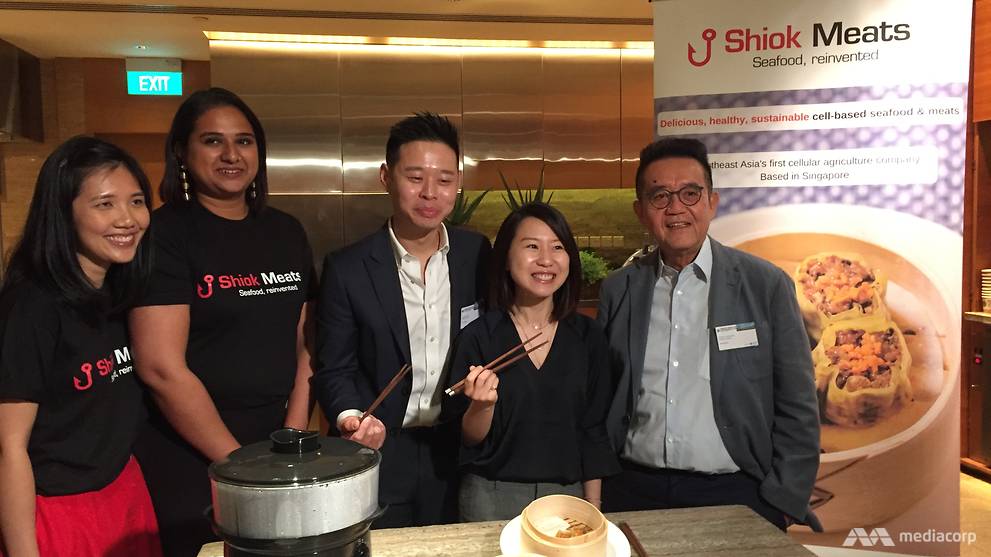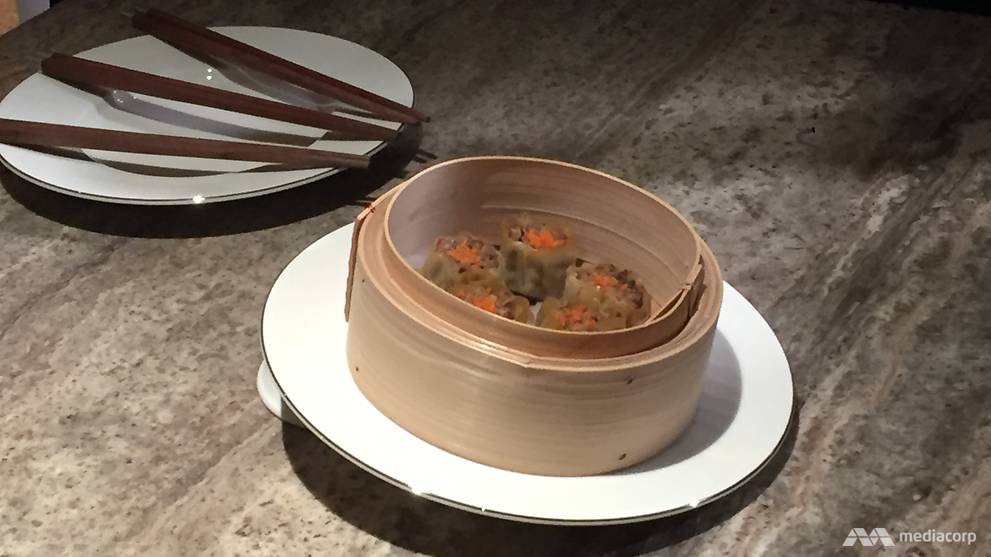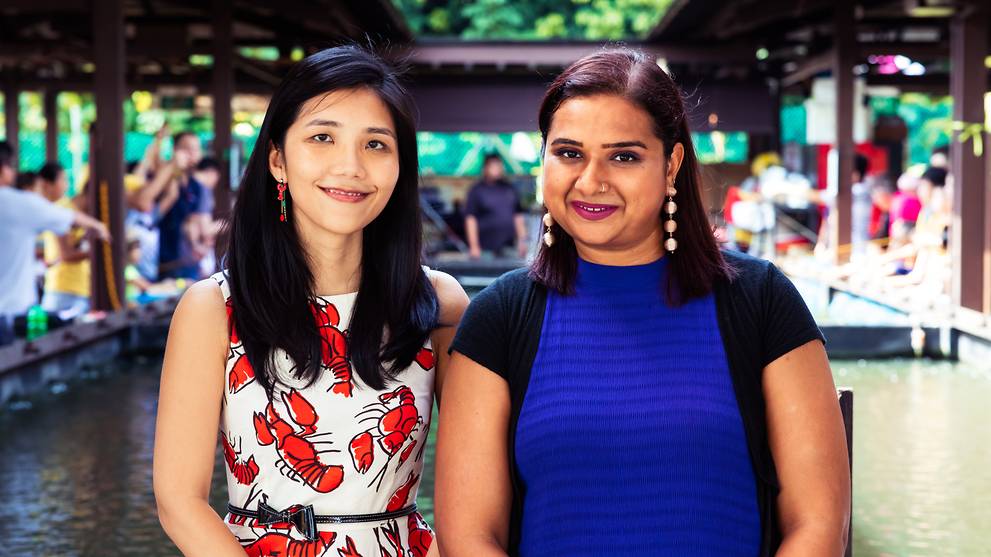Singapore's first cell-based meat venture Shiok Meats lifted the lid on its lab-grown shrimp dumplings at the Disruption in Food and Sustainability Summit (DFSS) on Friday (Mar 29).
There were just eight dumplings showcased at the summit, but the high-tech dim sum took months and S$5,000 to cook up.
Only three people at the unveiling got a taste - all three are advisors of Shiok Meats, a food tech start-up that focuses on growing seafood from stem cells. The Shiok Shrimp Dumpling is their first product.
All this reporter got was a whiff as Shiok Meats CTO Ling Ka Yi took the dumplings out of a steamer. Yes, they did smell like shrimp.
"The three advisors who tasted it, they definitely said that it tasted like shrimp. So we’re very happy," said Shiok Meats CEO Sandhya Sriram.
Founded in August last year, Singapore-based Shiok Meats is the first cell-based meat company in Southeast Asia. It is the brainchild of two stem cell biologists: Dr Sriram, 33 and Dr Ling, 31.

While cell-based meat companies are not new, with Memphis Meats operating since 2015, most are based in the United States.
“Currently the way shrimps are being grown in farms, they are being grown in dirty water and being injected with antibiotics and hormones to keep them clean and make them bigger. We had to find very specific shrimp farms for clean shrimp to source our stem cells,” said Dr Sriram.
Cell-based meats have fewer toxins and are less taxing on the earth’s resources, according to Dr Sriram.
“The vision of the company is to completely replace farmed shrimp and wild-caught shrimp. (We want to have) Shiok Shrimp in supermarkets, hawker centres, restaurants, everything,” she said.

For the year ahead, they plan to lower the cost of production by 100 times.
Stem cells have to be placed in a nutrient mix for the cells to grow into meat, but this solution is now too costly for mass production.
This is why creating eight dumplings cost the company about S$5,000.
“If we can hit that magic potion, the price (of the eight dumplings) will come from S$5,000 to S$50,” she said.
She estimates that it would take them at least five years to reach the mass market, but Shiok Meats is in talks with three premium restaurants to use their shrimp by the end of next year.

Many investors have already expressed their interest in Shiok Meats, although most of them are based outside Asia.
“We raised a little more than half a million in two and a half months of starting the company, (but) most of it was money from the US," said Dr Sriram.
Members of the public that CNA spoke to were generally open to trying cell-based meat.
National University of Singapore student, 24-year-old Cheong Yinn Shan said: "I would definitely be keen to try this. The meat industry contributes a lot of greenhouse gases and has a high water footprint, so I will support any innovations to reduce our society’s reliance on factory-farmed meat.”
Source : Channel News Asia


















